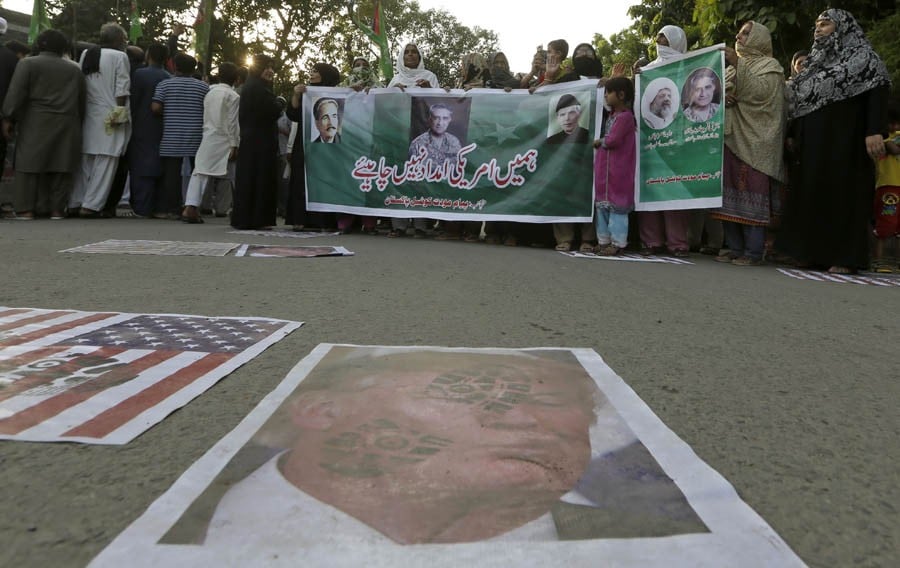
The new American policy on Afghanistan will bring Pakistan even closer to China and Russia

On August 2, Donald Trump laid out his strategy for war in Afghanistan and South Asia. The strategy presages a tough time for Pakistan. "We can no longer be silent about Pakistan’s safe havens for terrorist organisations, the Taliban and other groups that pose a threat to the region and beyond," amply demonstrates what lies ahead for Pakistan.
Why is the US getting tough with Pakistan? Is targeting the US service members the answer? "No partnership can survive a country’s harbouring of militants and terrorists who target US service members and officials," noted Trump. Nevertheless, his claim is not supported by facts. According to icasualities.org, in 2010, a total of 499 American soldiers, the highest number since 2001, were killed in Afghanistan. The number of American fatalities, however, decreased significantly. In 2016, only 14 American soldiers were killed in the country. By the time of writing this article, in 2017, just 11 American soldiers have lost their lives in Afghanistan.
Has America not achieved its initial objective(s) in Afghanistan? On September 21, 2001, President Bush, in his address to a joint meeting of Congress, said: "Our war on terror begins with al-Qaeda, but it does not end there. It will not end until every terrorist group of global reach has been found, stopped and defeated." In March 2009, Obama’s strategy for Afghanistan and Pakistan was meant to "disrupt, dismantle and defeat al-Qaeda in Pakistan and Afghanistan, and to prevent their return to either country in the future." With the decimation of al-Qaeda especially after the killing of its chief Osama Bin Laden back in May 2011, the terrorist entity appears to have faded into oblivion. The US has been overstepping its self-designated mandate by staying in Afghanistan. This certainly worries the regional states.
Perhaps, the US is all set to eliminate Taliban. Really? In the first place, the US did not even consider Taliban as a direct threat to the American security. They were not "terrorist group of global reach". Secondly, Taliban provide for a justification of American presence in Afghanistan. "Conditions on the ground, not arbitrary timetables, will guide our strategy from now on," stated Trump.
The question is who will decide what are the "conditions on the ground "? For sure, from Trump’s perspective, it would be the Uncle Sam itself that will determine when to move out of Afghanistan.
Let us assume that the US is determined to eliminate Taliban and others of its hues. As Trump said, "Another fundamental pillar of our new strategy is the integration of all instruments of American power -- diplomatic, economic, and military -- toward a successful outcome." As a result, Pakistan will come under pressure to deliver on the count of severing ties with Taliban but perhaps never something akin to what Bush said post 9/11: "Either you are with us or you are with the terrorists."
Read also: Trump’s charge-sheet against Pakistan
There are very slim chances that the US will be all set to eliminate Taliban because, defeating the Islamist militia won’t be an easy task. Besides, it would be equivalent to shooting itself in the foot on the part of the US. In the event, the US would need to invent another excuse to justify its presence in Afghanistan and the region around. Washington’s goals in Afghanistan and the region around are obviously other than defeating al-Qaeda or Taliban and others of their ilk.
So what really leads to the Washington’s getting tough with Islamabad?
It is the policy behaviour of regional states that has induced the hardening of the US stance. Those familiar with the operation of US foreign policy behaviour know that external environment plays a major role in determining the US policy towards a region and country. The increasing involvement of Russia, China and Pakistan in Afghanistan and the ever-increasing closer cooperation between China and Pakistan under Obama is a matter of concern for Trump’s administration.
The US has been losing initiative to a number of rival states in the Pakistan-Afghanistan region. Seen this way, Trump’s Afghan strategy consolidates emerging regional alliance. The US, India and Afghan national government are on the same page rivalled by China, Russia, Pakistan and Taliban. So, the US is reclaiming its lost space in Pak-Afghan region. Trump’s warning to Pakistan, on the count of latter’s alleged support to Taliban, is also a veiled reference to Russia but more so to China.
In all probability, Trump’s policy towards Pakistan won’t be any different from his predecessors -- both Bush and Obama. It would entail withholding aid to Pakistan, exerting diplomatic pressure on the country and the "do more" mantra.
Pakistan has long honed the skill of adapting to the American pressure tactics without substantially compromising on its ‘national interests’ in Afghanistan. The American pressure will bring Pakistan even closer to China and Russia. In the Pak-Afghan region, the US choices have only dwindled with the passage of time. Reclaiming the lost space is not a piece of cake.
Read also: From Af-Pak to Af-South Asia